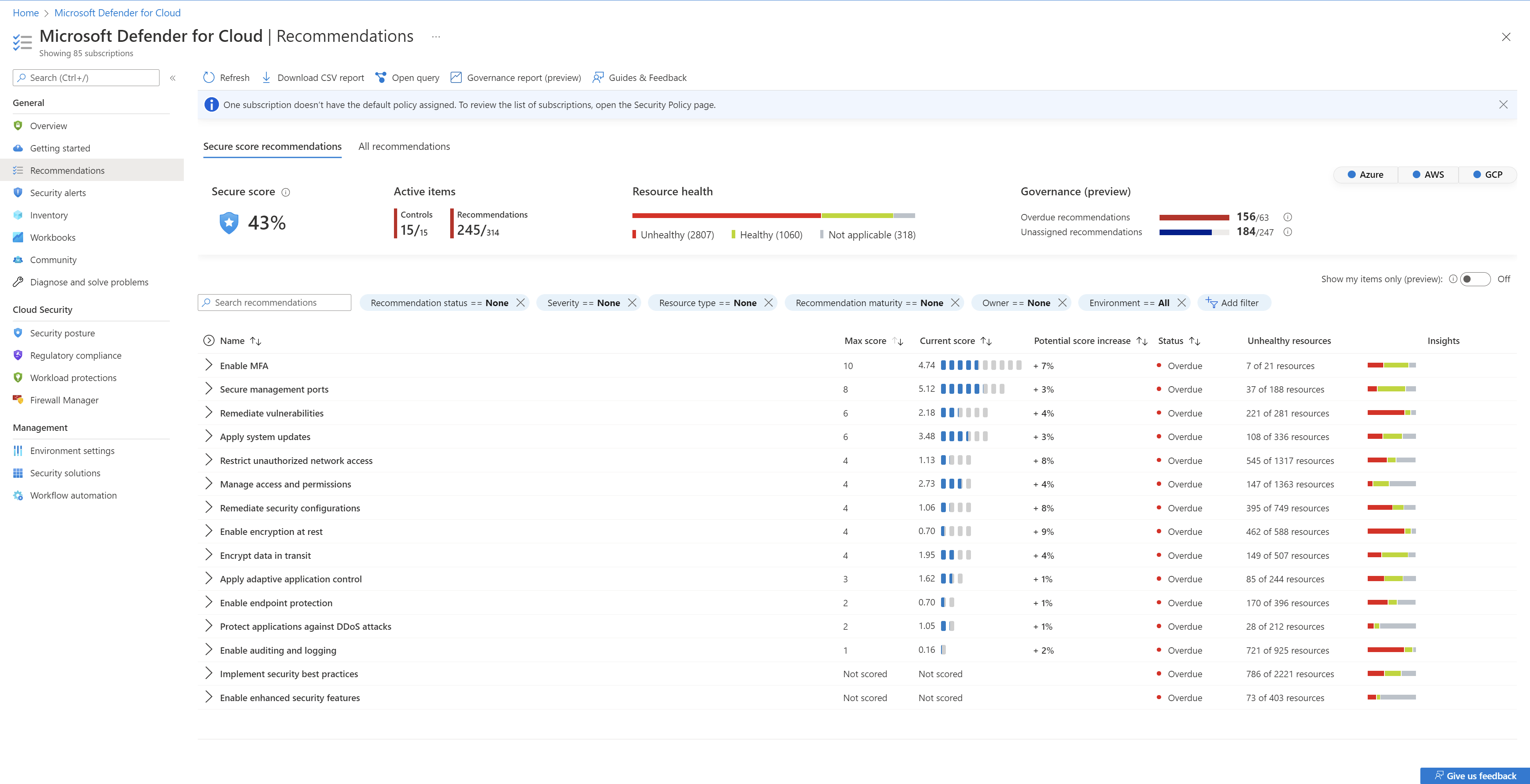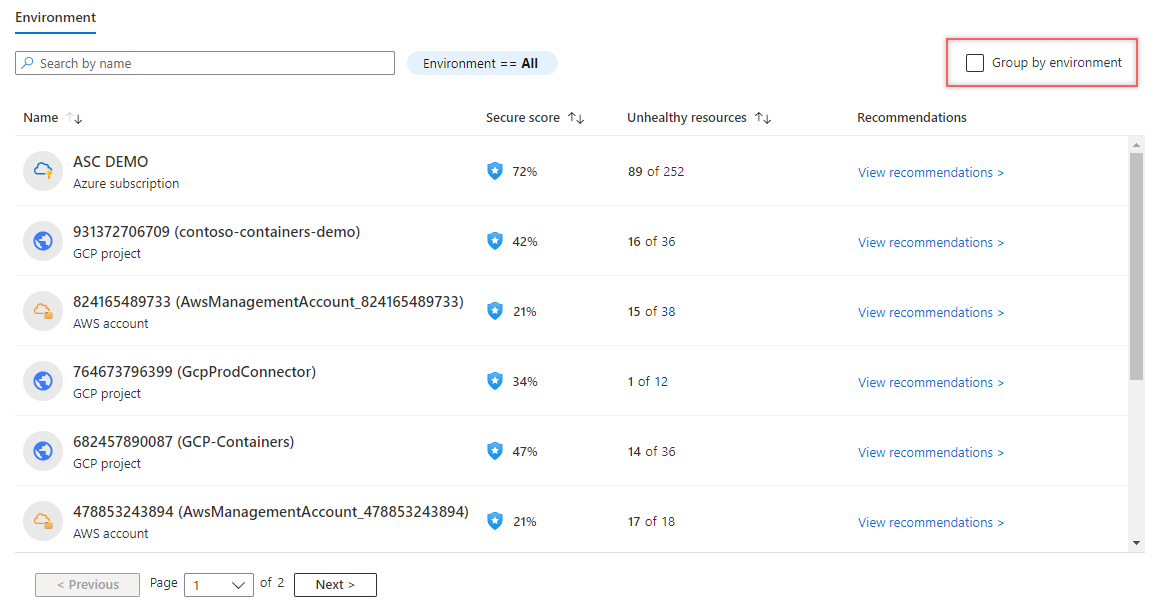Security posture management and threat protection
The secure score in Microsoft Defender for Cloud can help you to improve your cloud security posture. The secure score aggregates security findings into a single score so that you can assess, at a glance, your current security situation. The higher the score, the lower the identified risk level is.
When you turn on Defender for Cloud in a subscription, the Microsoft cloud security benchmark (MCSB) standard is applied by default in the subscription. Assessment of resources in scope against the MCSB standard begins.
Note
Recommendations flagged as Preview aren't included in secure score calculations. You should still remediate these recommendations wherever possible, so that when the preview period ends, they'll contribute toward your score.
Viewing the secure score
When you view the Defender for Cloud Overview dashboard, you can view the secure score for all of your environments. The dashboard shows the secure score as a percentage value and includes the underlying values.
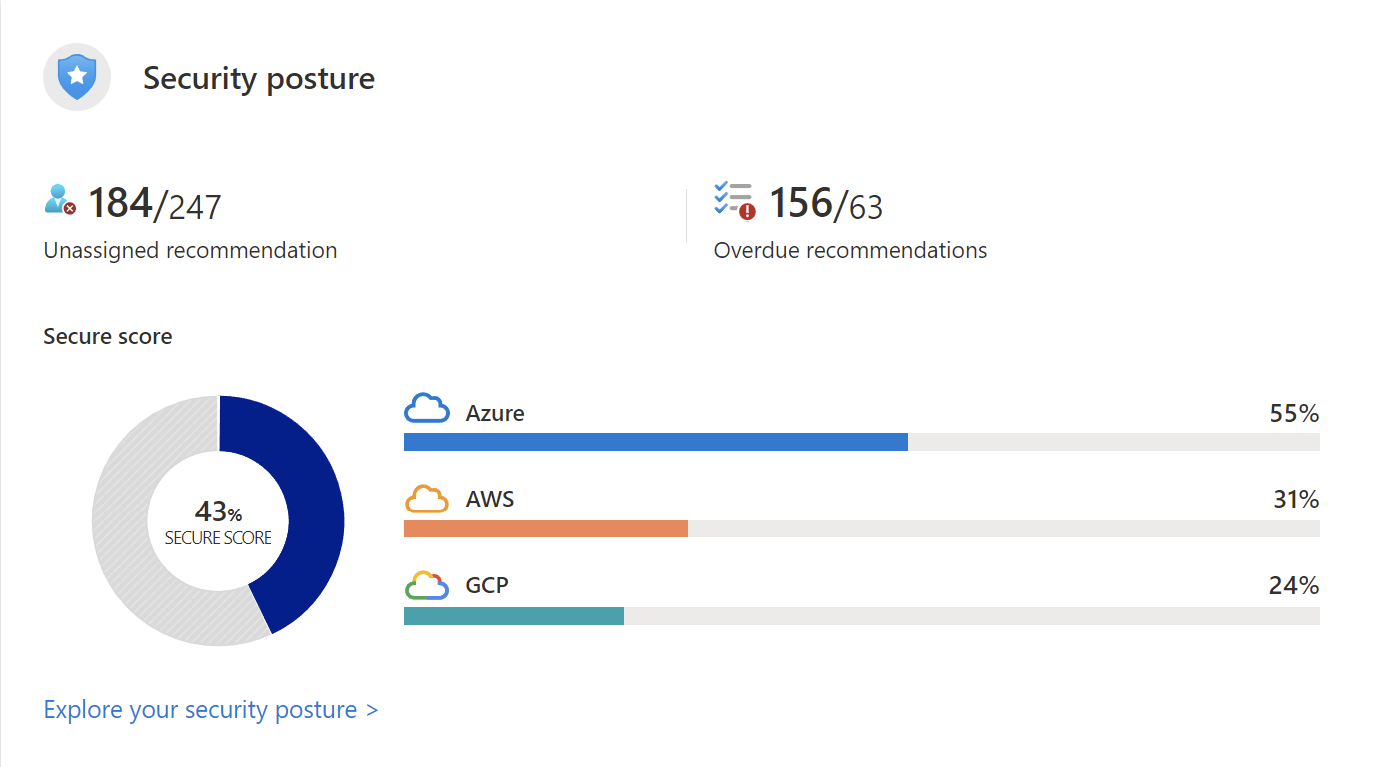
The Azure mobile app shows the secure score as a percentage value. Tap it to see details that explain the score.
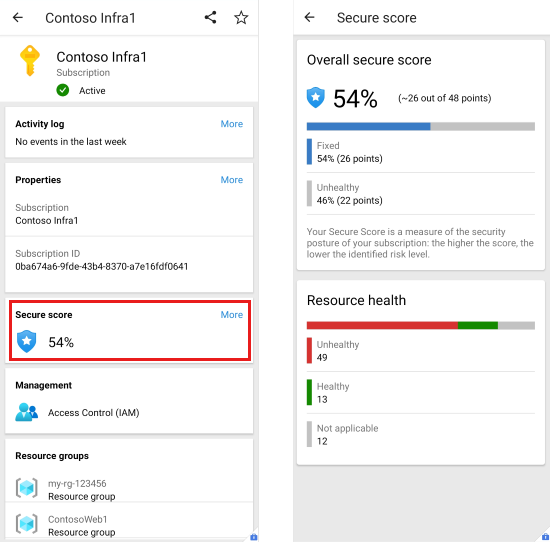
Exploring your security posture
The Security posture page in Defender for Cloud shows the secure score for your environments overall and for each environment separately.
On this page, you can see the subscriptions, accounts, and projects that affect your overall score, information about unhealthy resources, and relevant recommendations. You can filter by environment, such as Azure, Amazon Web Services (AWS), Google Cloud Platform (GCP), and Azure DevOps. You can then drill down into each Azure subscription, AWS account, and GCP project.
Calculation of the secure score
On the Recommendations page in Defender for Cloud, the Secure score recommendations tab shows how compliance controls within the MCSB contribute toward the overall security score.
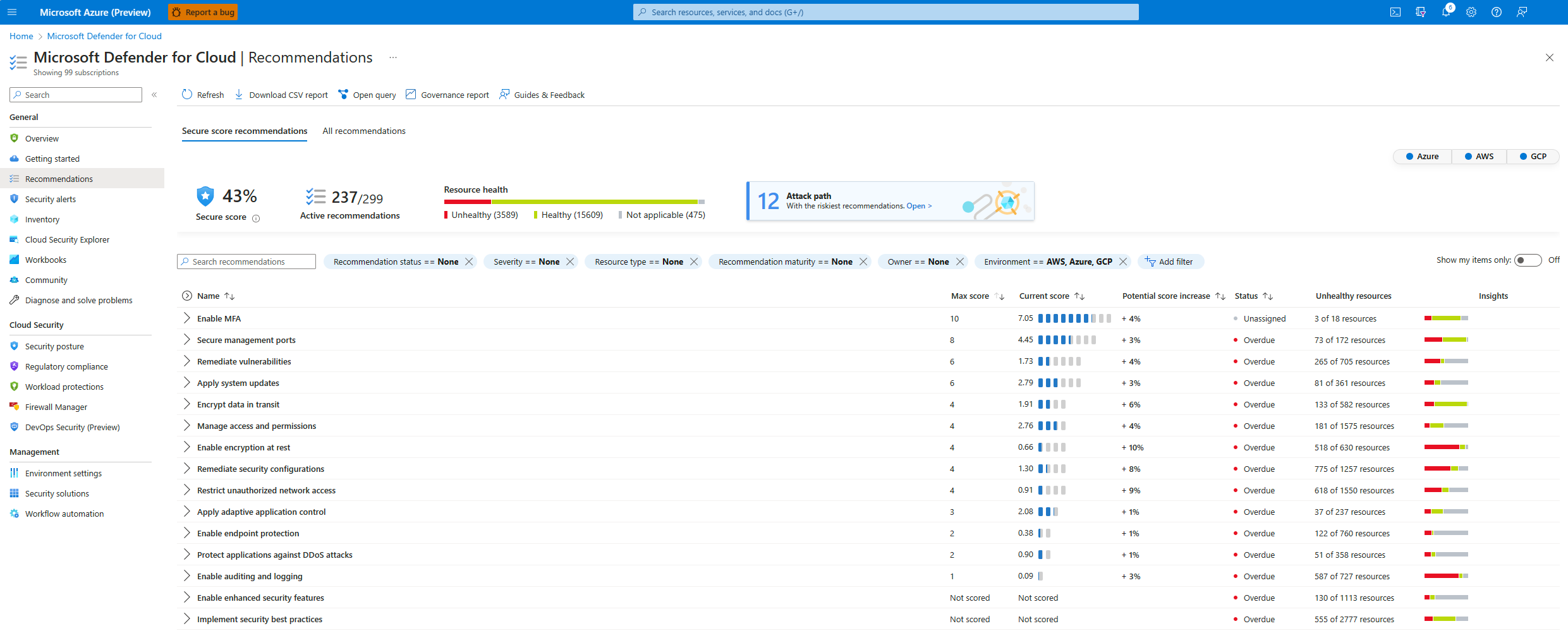
Defender for Cloud calculates each control every eight hours for each Azure subscription or for each AWS or GCP cloud connector.
Recommendations within a control are updated more often than the control itself. You might find discrepancies between the resource count on the recommendations and the resource count on the control.
